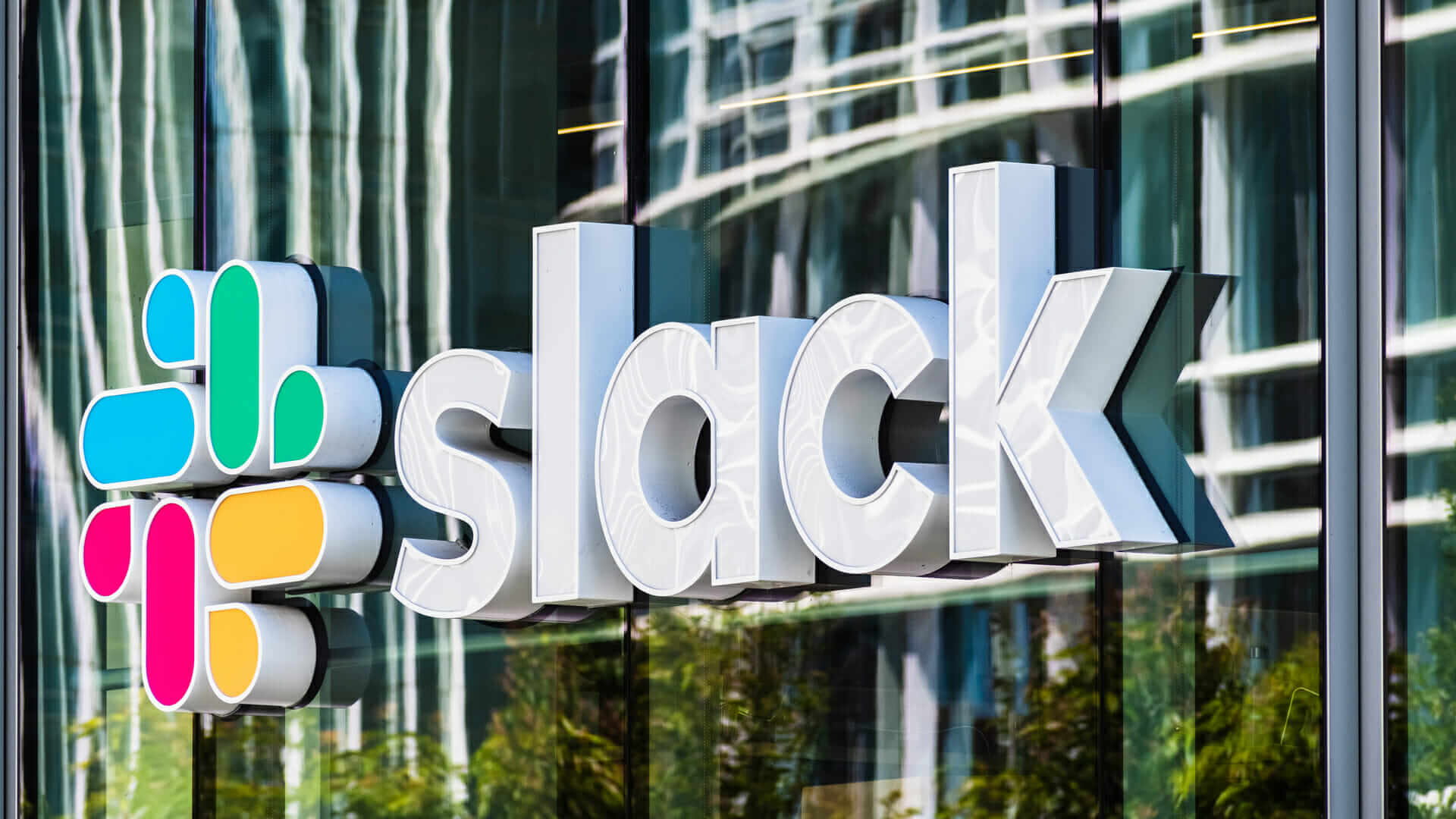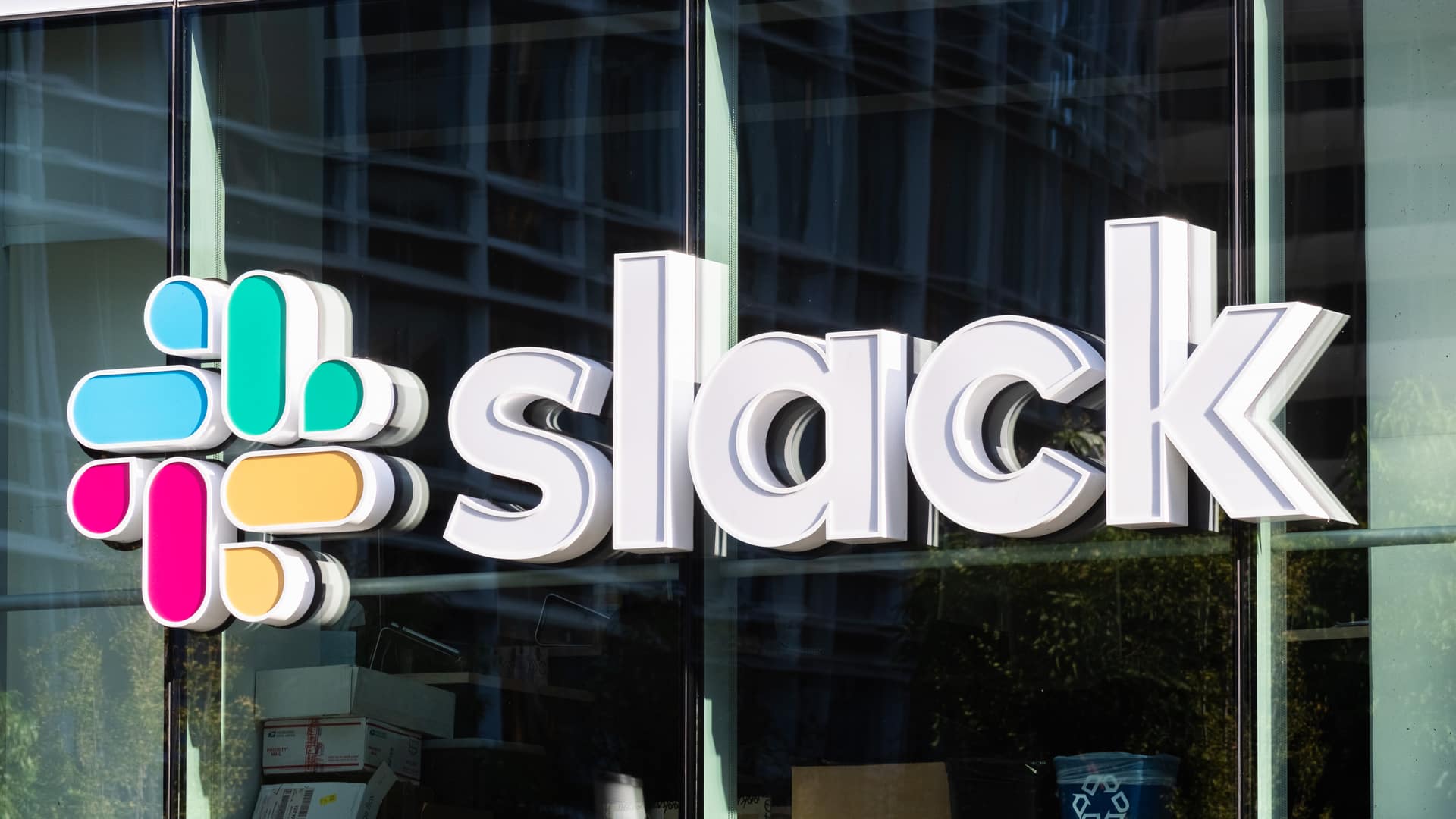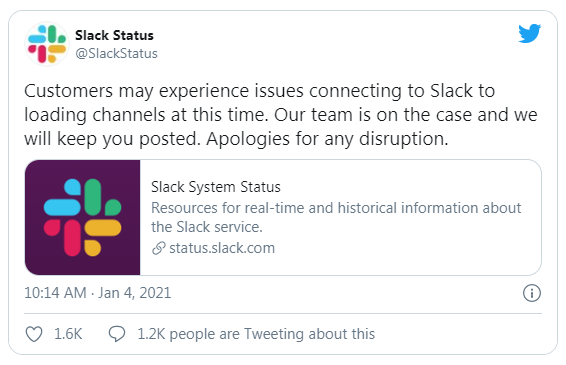One of the defining events of 2/22/22 for many U.S.-based remote (and even non-remote) workers will be Slack going down around the beginning of the east coast working day. Slack stopped loading on desktops and laptops, displaying instead an alert message that confessed Slack didn’t know what was going on. Phone apps seemed to be partially loading.
Over three hours later, the situation was still not fully resolved, although the Slack Status channel said: “We’re continuing to see signs of improvement and are monitoring the situation. If you’re still encountering any trouble, please reload Slack or clear the app cache.”
But it wasn’t just Slack. Amazon Web Services too saw an outage beginning around 10 am EST. Peloton experienced what it called a “major outage” in the same time frame. There were also reports that GitHub was down, but it seemed to be operating normally by the afternoon.
Read next: What marketers can do next time a major social network goes down
Why we care. We use Slack. What’s more, for some people, Slack being down is like the internet being down. Other people have similar feelings about social channels. While it’s not the only collaboration platform by any means, Slack joins the dots for many business teams around the country. What, I have to email people?
This all comes, of course, at the same time as Russia moves troops into eastern regions of Ukraine, reminding us that about a month ago a Department of Homeland Security bulletin said: “Russia maintains a range of offensive cyber tools that it could employ against US networks — from low-level denials-of-service to destructive attacks targeting critical infrastructure.” Not that we’re saying President Putin would start with Slack and Peloton. Whether there is any connection between these outages remains unknown at time of writing.
Get the daily newsletter digital marketers rely on.












You must be logged in to post a comment Login